Comment:
Legacy media needs to get in touch with reality and ground truth and stop the trick or treat.
Natural immunity actually works, even though the vaccines are no longer performing up to intended purpose and specifications. – @RWMaloneMD
Aylin Woodward and Hilary Brueck Nov 1, 2021
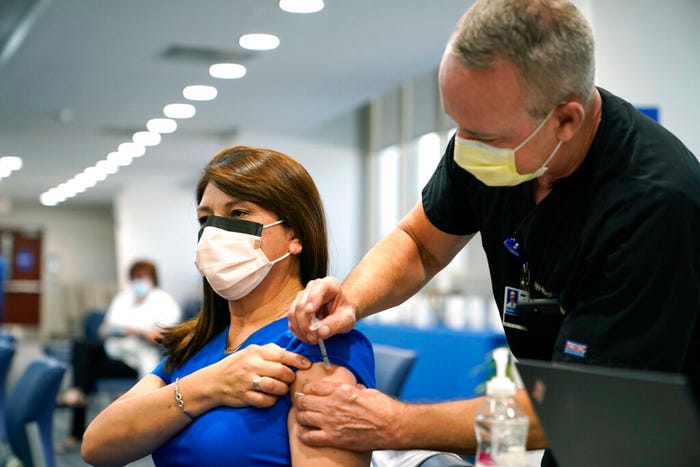
- The technology behind Pfizer and Moderna’s vaccines makes it easy to tweak shots to target coronavirus variants.
- Current booster shots aren’t specific to Delta, because the original vaccines are still effective against the variant.
- If spread of COVID-19 gets under control through vaccinations, there may never be a need to change them.
Get a daily selection of our top stories based on your reading preferences.Email addressBy clicking ‘Sign up’, you agree to receive marketing emails from Insider as well as other partner offers and accept our Terms of Service and Privacy Policy.
When the Delta variant ruined America’s plans for a hot vax summer, drug-makers scrambled for a quick fix.
Boosters were coming, politicians promised. The mRNA technology undergirding Moderna and Pfizer’s COVID-19 vaccines had already been heralded as flexible — able to be tweaked with relative ease to fight off emerging coronavirus variants. Shiny new life preservers to safely deliver us from the Delta wave must be on the way, many thought.
And in fact, vaccine companies including Pfizer and Moderna did race to begin developing new Delta-targeted vaccines.
Now boosters have arrived in the US. But none are Delta-specific.
Moderna, Pfizer, and Johnson & Johnson’s boosters have all been green-lit for vulnerable populations in recent weeks, and data suggests they boost immune responses beyond levels seen with the initial vaccines.
The boosts, which all target one of the original strains of the virus, still work well against Delta and its descendants. So if you’ve been pinning your hopes on getting a Delta-specific booster, there’s no need to wait. What we already have is good enough.
“Right now, Delta’s superpower is not necessarily evading vaccine-induced immunity,” Dr. John Wherry, an immunologist and pharmacology expert with the Perelman School of Medicine at the University of Pennsylvania, told Insider. “Its superpower is it spreads faster.”
Increased infectiousness, on its own, is not something that necessarily necessitates a whole new vaccine.
“We’ve, at least for the moment, dodged a bullet,” he said.
Other variants like Beta demonstrated a more worrisome ability to potentially evade antibodies generated from the shots. But Beta, Wherry said, hasn’t spread as efficiently as Delta has — tamping down the need for Beta-specific boosters.
‘A never-ending race’
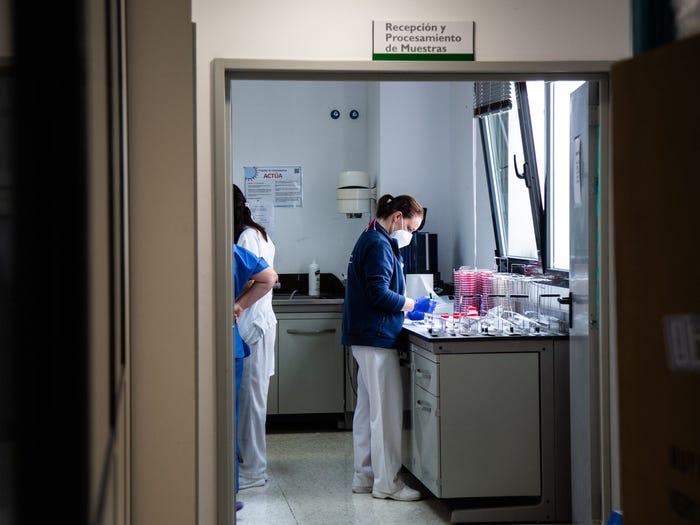
The coronavirus is constantly changing as it spreads from person to person, but its rate of evolution is orders of magnitude slower than a virus like the flu. Still, even that slow rate is far faster than the pace of vaccine manufacturing.
“If we were to update the vaccine every time a new variant arose, that would be a never-ending race,” Dr. Ramon Lorenzo, an infectious disease expert at Northwestern’s Feinberg School of Medicine, told Insider. “Imagine when we saw the Alpha variant that we had changed the vaccine to fight that. And now we see it’s all Delta, so that would’ve been a futile effort.”
The flu vaccine gets updated almost every year, because typically what’s circulating has changed so much that the previous year’s shot is no longer very effective.
The same is not true with the coronavirus. For now, a booster dose of our existing vaccines provides renewed protection against all variants.
That may have to do more with the timing of the booster than the number of shots given, according to Professor Francois Balloux, who directs the UCL Genetics Institute at University College London.
There’s no way to know for sure, but it’s possible we might have been able to achieve more durable immunity if the timing of the first two doses of the COVID-19 vaccines was more spread out (one piece of evidence for this: booster data from J&J suggests waiting six months to boost that single shot is far better than boosting after two months, in terms of antibodies.)
But staggering vaccine protection like that wasn’t a safe option during a deadly pandemic. Hence, boosters are needed.
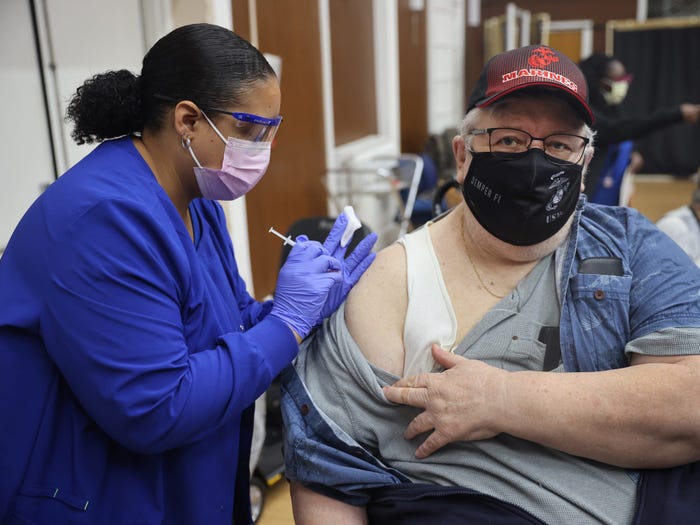
“For the current variants, we haven’t seen a need for a new variant vaccine. A boost seems to broaden your immune response enough,” Dr. Rachel Presti, who directs the infectious disease clinical research unit at Washington University School of Medicine in St. Louis, told Insider.
That’s because, even with variants of concern like Delta that collect an especially large number of mutations at once, the virus versions are still genetically very similar to their progenitor — the earliest novel coronavirus version sequenced from Wuhan, China, which is what all current vaccines are based on.
“The virus can’t actually mutate too far away from where it started from,” Wherry said. “If it does, it will no longer be able to get into human cells.”
So, for now, the protective antibodies our bodies produce after getting vaccinated against the older virus can still recognize and neutralize new variants — what’s known as cross-reactivity.
Such cross-reactivity could actually decrease, Lorenzo said, if people were vaccinated with the wrong kind of variant-specific shot.
“If you made a vaccine specific to the Alpha variant, it might share less common things with Delta than the original virus,” he said. That would mean such a vaccine might not work as well.
‘A logistical nightmare’
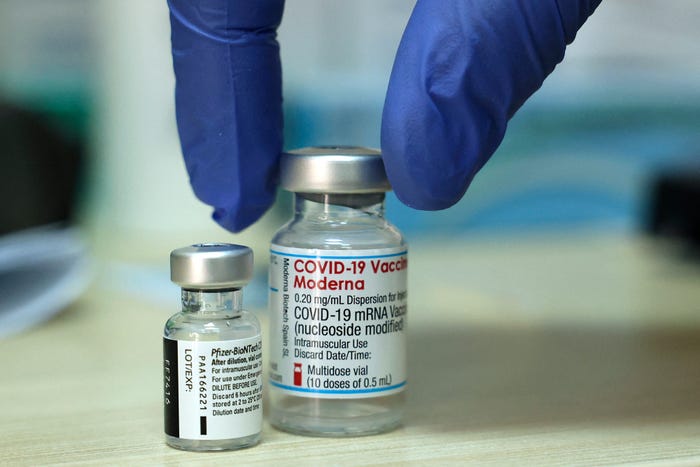
Experts say there would also be logistical challenges with distributing vaccines against different variants.
“We have current vaccine stocked in venues close to patients now, but it took a long time to achieve that,” Dr. Benjamin Linas, an epidemiologist at Boston University School of Medicine, told Insider via email. “We cannot start over every three months.”
Besides, there’s little precedent for approving and regulating variant-specific boosters. Federal regulators don’t require clinical trials to approve the new flu vaccine every year. But mRNA vaccine technology is new territory, Wherry said. It will be up to regulators to decide whether tweaked boosters require additional trials.
Most experts agree that, until real-world data show the effectiveness of the vaccine is dropping across multiple populations in different geographic areas, there’s no need to wade into that regulatory quagmire.
If we simply use what we have to “boost people, boost people, boost people, maybe we can swamp the variants,” Dr. Kathryn Stephenson, from Harvard’s Center for Virology and Vaccine Research, suggested at a recent conference.
Variant-specific vaccine trials are still happening
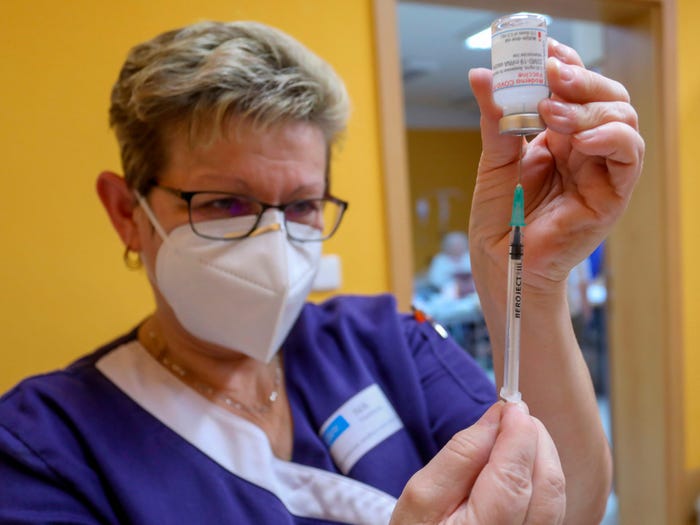
Vaccine-makers are still preparing for the possibility of variant-specific vaccines.
Moderna is investigating the usefulness of its Delta-specific booster, and Dr. Jacqueline Miller, senior vice president of infectious diseases at Moderna, told Insider the pharmaceutical company is hoping to post results from that trial in early 2022.
“Could we have some variant that throws all of this out the window? Definitely,” Presti said, warning it’s still possible a variant could emerge that would escape vaccine response completely. “The only way we’re going to stop this is actually to get enough immunity worldwide that we don’t see new surges where the virus can really mutate more.”
Miller agreed.
“To be clear, the best thing we could do is actually create the comfort level for unvaccinated people to decide to get vaccinated,” she said. “Herd immunity is just really difficult to achieve when you only have 60% vaccine coverage.”
https://www.businessinsider.com/delta-booster-unlikely-data-experts-suggest-unnecessary-2021-10
_______________________________
If you are looking for solutions (lawyer, form, gathering, action, maybe this could help you:
HERE
If you like our work please consider to donate :
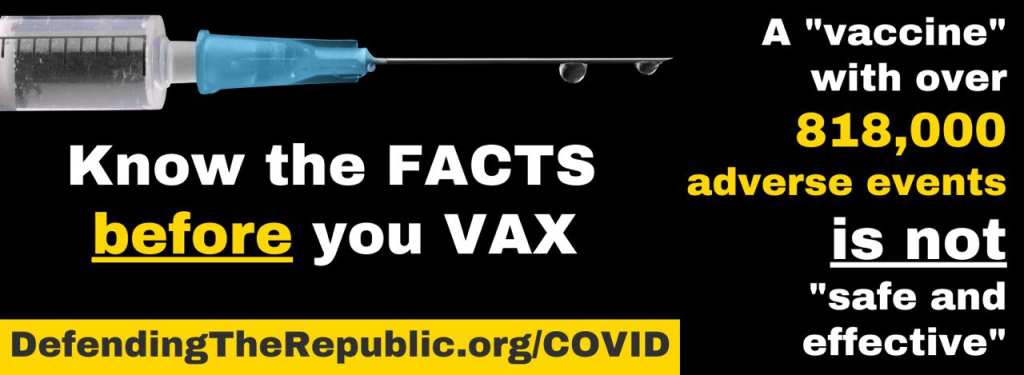
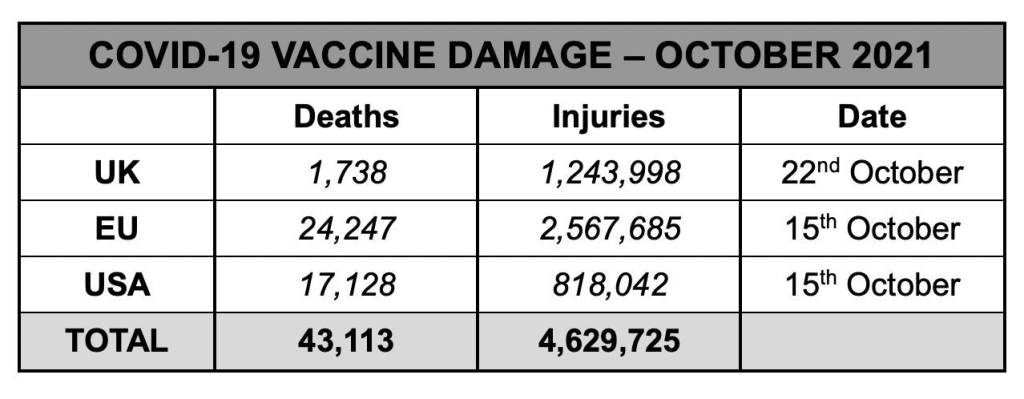

Related posts:
Views: 0
 RSS Feed
RSS Feed

















 November 4th, 2021
November 4th, 2021  Awake Goy
Awake Goy  Posted in
Posted in  Tags:
Tags: 
















